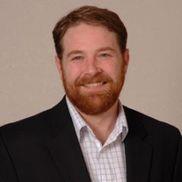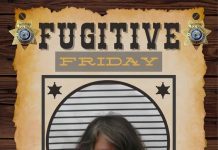West Plains, MO. – The West Plains R-7 School District Board of Education will elect three board members in this coming election on Tuesday, April 4th. Three members of the board are up for re-election (Jack Lee Freeman, Jr.; Christena Silvey Coleman; and Warren Reid Grigsby) and, there are two newcomers (Jodi Purgason and Scott Tuma) running for the open position.
News Team 7 will be releasing our interviews with each of the candidates throughout the week.
Today, we have our second school board candidate, Warren Reid Grigsby:
Transcription by Rev.com
Nate Hudson: This is Nate Hudson with Ozark Radio News. We are talking with our West Plains School board candidates for the coming up election in April. And today, we are speaking with Reid Grigsby who is running for re-election. Good morning Reid.
Reid Grigsby: Yeah, good morning Nate. Thanks for having me in.
Nate Hudson: So we’re starting off all of these interviews with the same line of questions, and why are you running for school board, and what are your qualifications?
Reid Grigsby: So there’s many, many reasons why I run for school board and probably first and foremost is I grew up with an educator in my house. My grandmother was an educator, my mother was an educator for Fairview and West Plains Elementary School for many, many years. Matter of fact, she’s still teaches at South Fork part-time and can’t quite give it up, but she does it and enjoys it. So I’ve been around education my whole life. I graduated from West Plains High School in 1993 and I have one child that’s still in the school system, he’s a junior. And my daughter successfully graduated from West Plains High School, is now a freshman at Drury. So I do it for my kids, I do it for the community. If anybody knows anything about me, I am very pro West Plains in basically any way that you could be. And the school system is absolutely important to our community and to our children and that’s why I do it.
Nate Hudson: Now the next question I would typically ask is, have you participated in past board meetings? Which, as you’re running for re-election, you’ve been in a few. So how long have you participated in school board meetings?
Reid Grigsby: So school board meetings, on and off, I’ve gone to meetings since I moved back to West Plains in 1999. I obviously didn’t go to every school board meeting, but if there was an issue that I was interested in or wanted to hear what the school board was going to decide, then obviously, I would go to a school board meeting. Outside of that, I’ve served on many advisory boards at the school. Also in 2015, was the head of a campaign that was to build a new school. So I’ve been intimately involved whether I’m on the board or off the board with the school system.
Nate Hudson: All right. So you’ve actually answered a couple of questions I do have on the list.
Reid Grigsby: Oh, great.
Nate Hudson: But being that you have already served on the school board, is there any other boards that you serve on that make decisions on policies or budget?
Reid Grigsby: Yeah, yeah, absolutely. So I’ve served on the industrial development corporation for many years here in West Plains. I currently also serve on the Ozarks Healthcare Board of Directors along with the school board at the same time. And so obviously, yeah, I’m used to working with very large budgets and with making critical decisions that make an impact for all of our constituents.
Nate Hudson: Now, continuing that topic on as far as decisions go, what do you believe are some of the top needs for The West Plains R-VII School District as it stands right now?
Reid Grigsby: So there’s many challenging areas right now and not making excuses, but you go back three years and Covid hit us in the face a little bit and caught us unprepared and we’re still a little bit behind because of that, to be quite honest with you. So one of the biggest challenges we have right now is the children that were affected, especially in the younger age groups that were affected education wise during that period, we have to have a laser focus on those kids and get them caught up. To me, that’s the most glaring issue. We have to focus on education, we have to focus on these kids that not necessarily falling through the cracks. I don’t want to say that, but the kids that need a little bit of help to get them over the hump. And so that’s our main focus right now.
Nate Hudson: Thank you. Yeah. When it comes to the current school budget, what are your budget priorities as far as, okay, what is the school throwing money at? What is the top point there?
Reid Grigsby: Top point now, and going back to the previous question, another challenge that we see is teacher compensation. That’s a big topic, not just in Missouri but nationwide. I feel that that teachers are grossly underpaid for the job that they do. I feel that we are doing a disservice to our educators in the state of Missouri and that’s one thing that we can do locally to try to help out there. However, a lot of that decision on teacher compensation needs to come from the state level because our local tax dollars are not sufficient enough to give our teachers the raise that they deserve.
So there’s going to have to be some legislation and they are working on some things right now at the State House in order to tackle that problem. But it leads to a couple other problems. There’s a teacher shortage and that could be a direct correlation to the compensation. And so that’s one thing that drastically needs to get fixed. We need to pay our educators, we need to be able to recruit the best and brightest educators right out of school and put them in our school system and let them do their work.
Nate Hudson: In that answer, you did bring up school funding and that was another one of the big questions that I do have on my list here is can you explain where the money comes to fund the schools, where does the bulk of that come from and how much of it do you know?
Reid Grigsby: Sorry I don’t have the figures right in front of me as far as percentage wise, but it’s a combination of local tax dollars, state funds and federal funds. Federal funds being the smallest percentage, local taxes being the largest percentage, and then the state somewhere in between. And then there’s many other facets of grant funds or special project funds or things of that nature that also come into the school budget. But a majority of the budget comes from state and local taxes.
Nate Hudson: All right, well that honestly does a great job answering that question, so thank you.
Reid Grigsby: You bet.
Nate Hudson: Just on a personal note, one of my favorite things about these is I do actually get to learn a whole lot about the school as we are going through this. Some of these are just questions I want to know as well. Now what are your views on how social studies, language arts are currently taught in the schools? Is it adequate? Does it need to change?
Reid Grigsby: Social studies and English language you said?
Nate Hudson: Yeah.
Reid Grigsby: Okay. So that always changes and it always has. My whole life, the methods of teaching those subjects has changed drastically. The kids have changed, the culture has changed and so we always have to stay on top. So I would say what we are doing now in social studies is that adequate. Our reading in English language needs a little help to be quite honest. We need to put a little bit more focus on that. But yeah, I would say it’s adequate right now, but there’s always, always room for improvement.
Nate Hudson: Now I’m going to move off into more of the spicier side of things, more of the questions that a lot of people have been talking about, debating about, coffee talk, things like that. And I’m going to start this off with school choice and what is your view on school choice?
Reid Grigsby: I have absolutely zero problems with school choice. I think as long as they figure out the funding and as long as the schools are not being hurt economically, I think school choice is a great idea. So there’s with any problem, especially when you’re dealing on the state level or with policy, it sounds good on paper until you put it into practice. And so as long as they figure out all the little things that will take care of the school districts and not hurt them economically, I’m all for it.
Nate Hudson: So another big topic that has been around for a few years now is the topic of critical race theory. So as a member of the school board, do you think or do you know if critical race theory is currently being taught in the district and can you define what critical race theory or CRT is?
Reid Grigsby: So yes, I can define what it is and no, it is not taught at any West Plain schools. And a matter of fact it’s not taught on the high school level anywhere in the state of Missouri. But yeah, I can define it. I have a college degree in psychology with a emphasis on philosophy. So in philosophy of government, when I was in that class we studied CRT and CRT is the theory that there is inherent racism baked into our laws and policies as a country and has been since the beginning, since the Declaration of Independence and the writing of the Constitution. That is a theory that’s been debated, is still being debated and that is a college level and probably a law school level course. It is not in the high school level nor does it belong.
Nate Hudson: Well, thank you. That’s a very good answer. Another big thing that has been going around and is actually going to be affecting the schools, it may already is the Missouri Senate recently passed a bill that would enact the Parent’s Bill of Rights, which DESSE, the Department of Elementary and Secondary Education already has a type of Parent’s Bill of Rights, but this would expand on it. What are your thoughts about this expansion on the Bill of Rights, or the Parent’s Bill of Rights?
Reid Grigsby: I have no problems with it whatsoever. I think you know, us as a school district, I’m speaking for West Plains R… Well, I’m not really speaking on behalf of West Plains R-VII, I’m speaking as a parent of West Plains R-VII right now. I think as a school system the parents should have insight to everything that their child learns and be able to opt out of certain readings if they’re not comfortable with it. I have no problems with that. I think as a school district we are constantly begging for parent involvement. That’s been a big push for us for the last 20 years, honestly.
We’re seeing as our school district gets larger and as the world is changed and as social media has come into play and you’re starting to see parent involvement at our schools tail off a little bit. And so it is so important to us. We want the children to succeed and whatever it takes to get that child to succeed. But we need help honestly. So there’s only so much that a school can do and we want the parents to be involved intimately with their child’s education. And matter of fact, we would welcome it with open arms and we are begging for it.
Nate Hudson: And some of the things that you mentioned there about certain readings does go into my next question question and that is, last year Missouri passed SB775, this banned a number of different books that covered topics such as sexual intercourse, genitalia, other materials as well. What are your views on the book banning and I do have a list of books that were recently taken out of schools and I was wondering if you have read any of the books that may have been banned or removed from the West Plain School District?
Reid Grigsby: Yeah, I’d like to see your list. I don’t know if I’ve read them all, but I have read several that I know of. No, my, it’s a large list.
Nate Hudson: Yeah, it’s some 300 books. There are many classics on there. Homer’s The Odyssey is one of them. William Shakespeare. Many of his works, as well as certain Batman and X-Men graphic novels.
Reid Grigsby: Correct. Yeah. So my view it is still changing on that, to be honest with you, I am a big proponent of literacy. I’m a big proponent of reading things that challenge your thought and reading things that put you in a different train of thought. And that way a student can put themselves in somebody else’s shoes and really dig into a different way of life. Now there are books that do not belong on the high school level that do not belong on the elementary level that do not belong. So I think the trouble that I have with book banning is it’s so ambiguous that what is right for someone is not right for somebody else. And so we need to take those as a case by case basis. However, at West Plains Library Science, our librarian, that is the first person that chooses books to have in the collection and they are trained to understand what is appropriate, what is not appropriate for whatever grade level.
So you have the books in the library, but the other side of that is the books that you have taught in the curriculum, for example. So if you have a book that’s controversial, I mean the one that has come up since I’ve been on the school board was Dear Martin.
Nate Hudson: Okay.
Reid Grigsby: And Dear Martin is a book about racism. It is a book that is similar to some of the classics as far as the overall theme of the book. It has been banned by a lot of different school districts. I’ve read it, I don’t see any issues with it. A lot of people have replaced it with the same theme with To Kill a Mockingbird, which is one of the greatest books I’ve ever written. Same theme, same topic, one’s accepted and one isn’t. So we need to figure out why that is. And I totally understand that if it’s something that goes against my personal beliefs or goes against my child belief, if somebody wants my child to read that book, then I would probably opt them out of it. And I think that parents should have that choice. However, I think it’s a slippery slope when you start willy-nilly banning books just because you don’t like the content because there is no good way to judge what is good and what is bad.
Nate Hudson: And my last question for you. In previous interviews I’ve done this question earlier, but my last question for you today is how can you address or how will you address the different needs of all students in the system?
Reid Grigsby: So I make my decisions and I think we do a really good job as our current board is the decisions that we make as a board are first and foremost what’s best for the kids. We obviously take everything into account, but at the end of the day, whether we vote yes or no is what is best for the kids. So when you have subgroups, we have free and reduced lunch, we have the sped kids, we have kids at the alternative school, we have middle school, elementary and high school kids. We are dealing with kids from a very broad array of backgrounds, socioeconomic, racial, whatever.
So it’s our job as a school board to educate those kids and whatever we have to do to reach those kids and in order to get them educated so that they can get out of school and be productive citizens of society and get a job. So I don’t know if I’m answering your question or not because that’s a tough one, but I want to make the decisions that are best for the children in that particular situation and I will continue to do that.
Nate Hudson: All right, well that is all the questions I have for you today. Reid, is there anything else you would like to add?
Reid Grigsby: Nothing that I would necessarily like to add right now. I think our school system, we are blessed. Honestly, when you look at school systems across the state, we are blessed to have a great school system. We’re blessed to have great administrators and great teachers and great kids quite honestly. And so you go to other areas of the state or other areas of the country and they don’t necessarily see a school district quite like we have. The community support is amazing. Like I said, we wish we had more parental support and I think we’re going to get there. We need everybody’s help in order for the West Plains R-VII School District to be successful. It takes all of us, the the whole community.
Nate Hudson: Well, thank you so much for coming in Reid and good luck come April 4th during the election.
Reid Grigsby: You bet. Thank you Nate.
Nate Hudson: This is Nate Hudson with Ozark Radio News.






